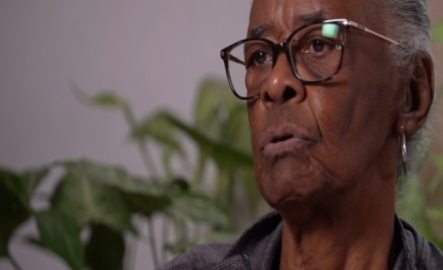Three Pennsylvania men imprisoned for decades in the 1997 killing of a 70-year-old woman, despite DNA evidence not matching, have had their convictions overturned by a Delaware County judge.
Derrick Chappell, and first cousins Morton Johnson, and Sam Grasty were convicted separately for the murder of Henrietta Nickens at her home in Chester, Pennsylvania on October 10, 1997. Chappell was 15 when arrested. The District Attorney is reviewing the case to ascertain whether a new trial is necessary, according to Daily Mail.
Nickens was brutally beaten, with her underwear removed, in a ransacked home where blood was found on walls and bedding. A mysterious green jacket, containing cocaine, was discovered atop Nickens’ television set.
Investigators found semen in the woman’s rectum, but DNA analysis excluded the three arrested individuals as the source. Prosecutors attempted to downplay the significance of the semen, suggesting it could have come from consensual intercourse unrelated to the murder.
Nickens, who had no known sexual partners, was chronically ill. The prosecution relied heavily on testimony from Richard McElwee, a key witness who was 15 at the time of the crime. McElwee testified that he acted as a lookout while the three older boys stole $30 from Nickens.
In exchange for his testimony, McElwee pleaded guilty to third-degree murder and other charges, receiving a prison sentence of six to 12 years in 1999. Meanwhile, Chappel, Johnson, and Grasty were convicted of second-degree murder in 2000 and 2001, each receiving life sentences.
Throughout their more than two decades of imprisonment, the trio maintained their innocence, filing multiple unsuccessful petitions in federal court to overturn their convictions.
Chappel, Johnson, and Grasty, whose cases attracted widespread attention from organizations advocating for the wrongly convicted, received legal assistance from various sources. Chappel was supported by the Pennsylvania Innocence Project and received pro bono aid from the law firm Shook, Hardy & Bacon. Johnson received help from the Innocence Project, while Grasty received assistance from Centurion.
The unwavering support of their family members, known as the “Chester Trio,” has been a source of strength for the three men, who are now in their 40s.
Last year, the case of the Pennsylvania men garnered renewed attention following testimony from forensic expert Timothy Palmbach, who also testified at Alex Murdaugh’s trial. Palmbach’s testimony shifted the trajectory of the case by presenting new DNA evidence. This evidence, including a mixture of the unknown man’s semen, Nickens’ blood, and urine on her bedsheet, indicated that the violent assault and sexual activity occurred simultaneously.
This revelation contradicted a key aspect of the prosecution’s argument, which claimed that the intercourse was unrelated to the crime. Palmbach’s testimony emphasized that the mixture “fundamentally changes the nature of the crime scene and the conclusion to be drawn from it.”
In 2021, advanced DNA techniques, especially the ‘touch DNA’ method, were utilized in the case. These techniques revealed that the semen found matched other evidence from the crime scene, such as semen on the bedsheet and the mysterious green jacket.
Armed with this new DNA evidence, the defendants sought to overturn their convictions and requested a new trial.










